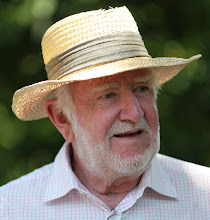I hadn't been following the debate between the good Dr Caldicott and George Monbiot. http://www.monbiot.com/2011/04/04/evidence-meltdown/. I don't always agree with Monbiot, but I admire his honesty. In this case, his experience in debate caused him to dig deeper, and he found:
The anti-nuclear movement to which I once belonged has misled the world about the impacts of radiation on human health. The claims we have made are ungrounded in science, unsupportable when challenged and wildly wrong. We have done other people, and ourselves, a terrible disservice.
My own response to the Caldicott piece agrees:
Helen Caldicott (NYT May 1) claimed that "If any of the containment vessels or fuel pools exploded [at Fukushima, Japan], it would mean millions of new cases of cancer in the Northern Hemisphere." The basis for her claim was that thousands (and possibly millions) might die from cancer as a result of the exposure to nuclear radiation following the Chernobyl accident. She cited two studies in support of her position.
Unfortunately she seems to have missed key data. First, there are the studies of the survivors of Hiroshima and Nagasaki. The Japanese Atomic Bomb Casualty Commission life span study noted an increase in the death rate of about 10% for those exposed to less than 10 rad (0.1Sv). The primary cause of the increase was additional deaths from leukemia. For an expected lifespan of 70, this is an additional 1430 deaths per year per million people. There were less than a million exposed to significant radiation at Chernobyl.
Secondly, there was the atmospheric weapons testing of the 1950's and 1960's, when the whole world was exposed to fallout. It contributes about 1% to the annual radiation dose we each receive. The fission products distributed into the environment were about ten times those released at Chernobyl. It has not been possible to detect any increase in cancer incidence from this source.
For those concerned about radiation, it helps to reflect that we require a radioactive substance in our diet. This is potassium, an element key to the functioning of our nervous systems. Potassium, thorium and uranium contribute approximately equal amounts of nuclear-derived heat to keep the centre of our globe molten.
It is easy to be frightened of what we cannot see, and nuclear forces are essentially invisible. Nevertheless, nuclear energy provides us with over 10% of the electricity we need to run our economies, and that percentage is growing.
Helen Caldicott admitted that there was a great debate about the number of possible fatalities caused by Chernobyl, but she gave only one side of the debate. Unsafe at any dose? If I starve her of the naturally radioactive potassium, her life will be radically shortened. A zero dose is truly unsafe - the rest of our dose needs careful management.
The people of Japan need help, sympathy and comfort. The losses they have suffered from the tsunami are of a warlike dimension. It is irresponsible of Caldicott to add her nonsense to their woes. As a medical doctor, she should have more care for human well-being than the publication of lies.


No comments:
Post a Comment